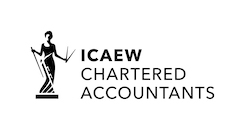Autumn Statement 2015
Overview
Chancellor pledges to ‘rebuild Britain’ as he targets £10bn budget surplus
Chancellor George Osborne pledged to move from ‘rescue’ to ‘rebuilding’ as he presented his combined Autumn Statement and Spending Review to the House of Commons.
Placing the theme of security – both economic and national – at the heart of his speech, the Chancellor set out his aim of making Britain ‘the most prosperous and secure of all the major nations of the world’, drawing on the latest economic forecasts to suggest that the Government’s spending plans are on target to deliver a £10.1bn budget surplus by 2019/20.
The Office for Budget Responsibility (OBR) has forecast a £27bn improvement in the public finances for the next five years compared to its July predictions, meaning that the Government can borrow £8bn less over the course of this Parliament.
For the current financial year the OBR has predicted economic growth of 2.4%, with borrowing expected to fall from £74.1bn to £73.5bn.
The biggest surprise of the Chancellor’s speech concerned the controversial plans to cut £4.4bn in tax credits in order to achieve the promised savings of £12bn per year in welfare spending. While many experts were predicting some transitional measures to soften the impact of the cuts, Mr Osborne unexpectedly announced a complete U-turn on the plans and revealed that taper and threshold rates for working tax credits and child tax credits would remain the same, until tax credits are phased out with the introduction of Universal Credit.
The costs would be offset in part by higher than expected tax receipts and new restrictions to be introduced on housing benefit and pension credit payments. The Chancellor also announced that overall police spending would be protected in line with inflation.
The statement included a number of headline measures for business, including an extension of the doubling of the Small Business Rate Relief for a further year. The Chancellor confirmed plans to abolish uniform business rates, granting new rate-setting powers to local councils, with further details to be unveiled in the Spring Budget. Meanwhile, the new business apprenticeship levy will be set at a rate of 0.5% of an employer’s wage bill.
Personal tax measures included confirmation that the new single tier State Pension will be set at £155.65 a week from next April. In addition, the Chancellor announced that local councils will be able to increase council tax by up to 2% in order to fund social care.
Other key announcements included a commitment to investing in transport and infrastructure, together with new plans to increase Britain’s housing stock.
For buy-to-let owners, though, the news was perhaps less welcome, with the announcement of a new 3% stamp duty surcharge for buy-to-let properties and second homes, to take effect from next April.
Business measures
Small Business Rate Relief
The Government has announced it will extend the doubling of Small Business Rate Relief for a further year from 1 April 2016. It is also undertaking a review of business rates, due to be reported at Budget 2016.
Business investment relief
The Government will consult on how to change the business investment relief rules to encourage greater use of the relief to increase investment in UK businesses.
Apprentices
As previously announced, the Government will introduce an apprenticeship levy in April 2017. It will be set at a rate of 0.5% of an employer’s wage bill and will be paid through PAYE. Each employer will receive an allowance of £15,000 to offset against their levy payment. This means that the levy will only be paid on any wage bill in excess of £3m.
The Government will also establish a new employer-led body to set apprenticeship standards and ensure quality. The body will be independent of Government and will also advise on the level of levy funding each apprenticeship should receive.
Diesel company cars
The three percentage point differential between diesel cars and petrol cars was set to be removed in April 2016. However, it will now be retained until April 2021, when EU-wide testing procedures will ensure new diesel cars meet air quality standards even under strict real world driving conditions.
Employment intermediaries
As confirmed in this year’s second Budget in July, the Government will legislate to restrict tax relief for travel and subsistence expenses for workers engaged through an employment intermediary, such as an umbrella company or a personal service company. Following consultation, relief will be restricted for individuals working through personal service companies where the intermediaries legislation applies. This change will take effect from 6 April 2016.
Charitable close company loans to participators
Legislation will be introduced in Finance Bill 2016 to ensure that a tax charge is not applied to loans or advances made by close companies to charity trustees for charitable purposes. This will apply to qualifying loans or advances made on or after 25 November 2015.
Venture capital schemes
With effect from 30 November 2015, the provision of reserve energy generating capacity and the generation of renewable energy benefiting from other government support by community energy organisations will no longer be qualifying activities for the Enterprise Investment Scheme (EIS), Venture Capital Trusts (VCTs) and Seed Enterprise Investment Scheme (SEIS).
In addition, these activities will not be eligible for Social Investment Tax Relief (SITR) when SITR is enlarged. The Government will exclude all remaining energy generation activities from the schemes from 6 April 2016, as well as from the enlarged SITR. Increased flexibility will also be introduced for replacement capital within EIS and VCTs, subject to state aids approval.
Averaging period for farmers
Following consultation, the averaging period for self-employed farmers will be extended from two years to five years as of April 2016, with farmers having the option of either averaging period.
Personal measures
Tax-free savings
The band of savings income that is subject to the 0% starting rate will be kept at its current level of £5,000 for 2016/17.
The current annual subscription limits for ISAs, Junior ISAs and Child Trust Funds will be kept at their current level for 2016/17 (£15,240 for ISAs, and £4,080 for Junior ISAs and Child Trust Funds).
State Pension
The starting rate for a full new State Pension will be set at £155.65 per week, to take effect in April 2016. The basic State Pension will be increased by the ‘triple lock’ for 2016/17, meaning a full basic State Pension will rise to £119.30 a week, an increase of £3.35.
Pension Credit
The single rate of the Standard Minimum Guarantee will increase in line with earnings by £4.40 to £155.60 per week, and the couples rate will rise by £6.70 to £237.55 per week. The Savings Credit threshold will rise to £133.82 for a single pensioner and to £212.97 for a couple, which will reduce the single rate of the Savings Credit maximum by £1.75 to £13.07 and the couples rate by £2.68 to £14.75.
Pensions auto-enrolment
The Government will delay the next two scheduled increases in automatic enrolment minimum contribution rates by six months each, to align these changes with the start of the tax year.
Pension annuities: secondary market
The Government will legislate to remove existing barriers to creating a secondary market for annuities, allowing individuals to sell their annuity income stream. Further details will be set out in a consultation response this December.
Inheritance tax
Legislation will be introduced in Finance Bill 2016 to ensure a charge to inheritance tax will not arise when a pension scheme member designates funds for drawdown but does not draw all of the funds before death. This will be backdated to apply to deaths on or after 6 April 2011.
Tax-free childcare
The upper income limit per parent will be lowered from £150,000 to £100,000 and the minimum income level per parent will be increased from the equivalent of eight hours to 16 hours at the National Living Wage.
Free childcare for working parents
The 30 hours free childcare offer for working parents of three- and four-year olds has been extended to help families maintain childcare arrangements and support the transition back to work at the end of their parental leave or period of ill health. Eligibility has been extended to cases where a parent or their partner (if they have one) is in work and the other parent is disabled or a carer; or where a parent or their partner (if they have one) is taking time away from work on paid sickness or parental leave.
Property measures
Stamp duty land tax (SDLT) on additional properties
From 1 April 2016, higher rates of SDLT will be charged on purchases of additional residential properties (above £40,000), such as buy-to-let properties and second homes. The higher rates will be three percentage points above the current SDLT rates.
These higher rates will not apply to purchases of caravans, mobile homes or houseboats, or to corporates or funds making ‘significant investments in residential property’. The Government will consult on the policy detail.
SDLT filing and payment process
There will be a consultation on changes to the SDLT filing and payment process to come into effect in 2017/18, including a reduction in the filing and payment window from 30 days to 14 days.
Annual Tax on Enveloped Dwellings (ATED) and 15% rate of SDLT
The Government will extend, from 1 April 2016, the reliefs available from ATED and the 15% higher rate of SDLT to equity release schemes (home reversion plans), property development activities and properties occupied by employees.
SDLT: application to certain authorised property funds
The Government will introduce a seeding relief for Property Authorised Investment Funds (PAIFs) and Co-ownership Authorised Contractual Schemes (CoACSs) and make changes to the SDLT treatment of CoACSs investing in property so that SDLT does not arise on the transactions in units. There will be a defined seeding period of 18 months, a three-year clawback mechanism and a portfolio test of 100 residential properties and £100m value or 10 non-residential properties and £100m value. These changes will take effect from the date Finance Bill 2016 receives Royal Assent.
Capital Gains Tax (CGT): payment window
From April 2019, a payment on account of any CGT due on the disposal of residential property will be required to be made within 30 days of the completion of the disposal. This will not affect gains on properties which are not liable for CGT due to Private Residence Relief. Draft legislation will be published for consultation in 2016.
CGT for non-UK residents disposing of UK residential property
With effect from 25 November 2015, the Government will amend the CGT computations required by non-residents on the disposal of UK residential property by removing (with retrospective effect from 6 April 2015) a double charge that occurs in some circumstances and correcting an omission. HM Revenue & Customs will be given powers to prescribe circumstances when a CGT return is not required by non-residents and will add CGT to the list of taxes that may be collected on a provisional basis.
Housing – the ‘Five Point Plan’
The Chancellor’s combined Autumn Statement and Spending Review included a range of measures intended to enable more people to own their own homes. Presented as a ‘Five Point Plan for housing’ worth over £20bn, the main announcements included the following:
1 – Measures to build 400,000 affordable houses by 2020/21, including 200,000 Starter Homes which will be sold at a 20% discount compared to market value to young first time buyers, and 135,000 Help to Buy: Shared Ownership homes. Existing constraints that prevent private sector organisations participating in the delivery of such programmes will be removed
2 – Extending the Right to Buy scheme to Housing Association tenants, with an initial pilot scheme involving five Housing Associations
3 – Measures to accelerate housing supply, including reforms to the current planning system to encourage house building and helping to release more public sector land and brownfield sites
4 – Extending the Help to Buy: Equity Loan scheme to 2021 and creating a special London Help to Buy scheme which offers a 40% equity loan
5 – Using some of the revenue from increased SDLT rates on purchases of additional residential properties to provide £60m for communities in England most affected by the impact of second homes, doubling their affordable housing budget to help first time buyers.
Tax system reform
A digital tax system
The Government will invest £1.3bn to transform HMRC into ‘one of the most digitally advanced tax administrations in the world’. Most businesses, self-employed people and landlords will be required to keep track of their tax affairs digitally and update HMRC at least quarterly via their digital tax account. HMRC will ensure the availability of free apps and software that link securely to its systems and provide support to those who need help using digital technology. This will not apply to individuals in employment, or pensioners, unless they have secondary incomes of more than £10,000 per year. The Government will publish its plans to transform the tax system shortly and will consult on the details in 2016.
Simplifying self assessment
Draft legislation is to be published in Finance Bill 2016 that will enable a new, simpler process for paying tax. This will be used for taxpayers in self assessment who have simple tax affairs where HMRC already holds all the data it needs to calculate the tax liability, and where existing payment processes are not available. Taxpayers will be sent a calculation which will be a legally enforceable demand for payment, and taxpayers will be able to challenge and appeal these calculations. This process will come into effect in the 2016/17 tax year.
Anti-avoidance measures
Various measures to tackle tax avoidance and evasion have been announced, including:
- A new penalty of 60% of the tax due to be charged in all cases successfully tackled by the General Anti-Abuse Rule (GAAR)
- An increase in civil penalties for deliberate offshore tax evasion and for those who enable it
- A new criminal offence that removes the need to prove intent for the most serious cases of failing to declare offshore income and gains
- New penalties for those who persistently enter into tax avoidance schemes that are defeated by HMRC
- The Transactions in Securities rules will be amended and a Targeted Anti-Avoidance Rule introduced in order to prevent opportunities for income to be converted to capital so as to gain a tax advantage
- With effect from 25 November 2015, the legislation will be amended to prevent companies from artificially lowering the disposal value of plant and machinery for capital allowances purposes, and to make any payment received, for agreeing to take responsibility for tax deductible lease related payments, subject to tax as income
- The Government intends to take action against those who have used or continue to use disguised remuneration schemes and who have not yet paid their ‘fair share’ of tax
- New rules to prevent multinational enterprises avoiding tax through the use of certain cross-border business structures or finance transactions
- The intangible fixed asset rules will be amended to ensure that partnerships cannot be used in arrangements that seek to obtain a tax relief for their corporate members in a way that is contrary to the intention of the regime
- Legislation to determine when performance awards received by asset managers will be taxed as income or capital gains. An award will be subject to income tax unless the underlying fund undertakes long term investment activity
- Following consultation, a new requirement that large businesses publish their tax strategies as they relate to or affect UK taxation.
Devolution, infrastructure and other measures
Enterprise Zones
The Government will expand the Enterprise Zone programme in England with the announcement of 18 new sites across the country and the extension of eight sites on the current programme. These include 15 Zones in smaller towns and rural areas, spreading Enterprise Zone benefits to 108 sites across the country.
Devolution across the UK
The Chancellor confirmed the Government’s commitment to devolving powers to Scotland, Wales and Northern Ireland.
There will be up to an additional £500m of spending power for the Northern Ireland Executive to support the full implementation of the Stormont House Agreement, with the Government also reinforcing its commitment to the devolution of corporation tax.
The Government will legislate to remove the requirement for the Welsh Assembly to hold a referendum in order to implement the Welsh rates of income tax. The Government is also introducing a floor in the level of relative funding provided to the Welsh Government at 115% of comparable spending per head in England, and has committed, in principle, to contribute to an infrastructure fund for the Cardiff region.
The Scotland Bill, which contains significant tax and spending powers, has completed its House of Commons stages and is on track to receive Royal Assent in early 2016.
Local government reform in England
The ‘devolution revolution’ sets out a new deal for local government. It requires local authorities to make efficiency savings, but in return offers them new levers of power to generate growth for their area.
The Government will allow local government to keep the rates they collect from business, give councils the power to cut business rates to boost growth, and give elected city-wide mayors the power to levy a business rates premium for local infrastructure projects, provided they have the support of the local business community.
Northern Powerhouse
The Chancellor reiterated the Government’s commitment to building a ‘Northern Powerhouse’, pledging to spend £13bn on transport in the North over the Parliament. The Government will also invest in world class scientific research and support further Northern Powerhouse trade missions to key emerging economies.
VAT on sanitary products
While the Government makes the case in the EU for a zero rate of VAT for sanitary products, a new £15m annual fund equivalent to the VAT raised each year on sanitary products will support women’s charities. The fund will run over the course of this Parliament, or until the UK can apply a zero rate.
Motor insurance
The Government intends to introduce measures to end the right to cash compensation for minor whiplash injuries. This aims to end the cycle in which responsible motorists pay higher premiums to cover false claims by others. The Government expects the insurance industry to pass an average saving of £40 to £50 per motor insurance policy on to consumers.
What they said…
Today we deliver the Spending Review of a one nation Government: the guardians of economic security. The protectors of national security. The builders of our better future.
Chancellor George Osborne
After five years the deficit has not been eliminated and this year it’s predicted to be over £70 billion.
John McDonnell, Shadow Chancellor





